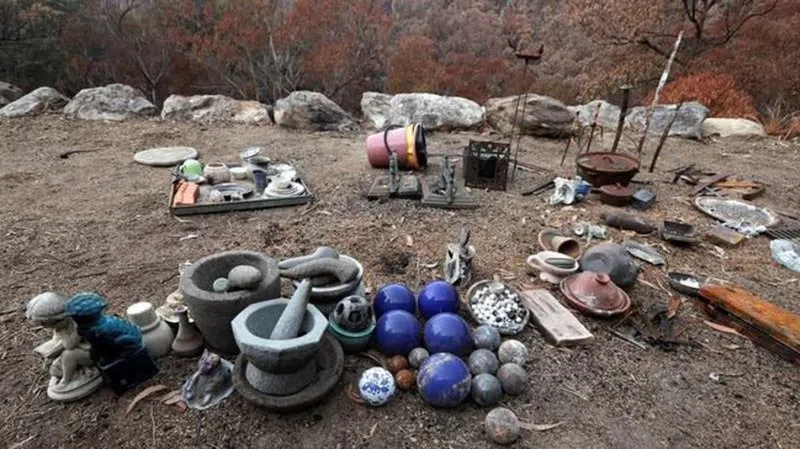
Family’s fortress no match for rapacious Australian fires
BALMORAL, Australia — With flames climbing as high as a 15-story building and menacing his supposedly fireproof home on three sides, Justin Kam ran to the laundry room and opened the door. Inside was fire.
That’s not supposed to happen, he thought.
It was clear his family’s fortress had been breached and they were in mortal danger and needed to get out.
“Once the fire had penetrated the structure, that was the signal: Time to get out. You can’t save it,” he said. “Staying in any longer and we really would’ve been a statistic.”
